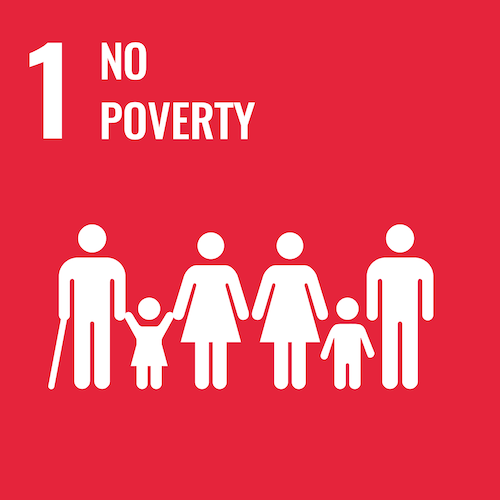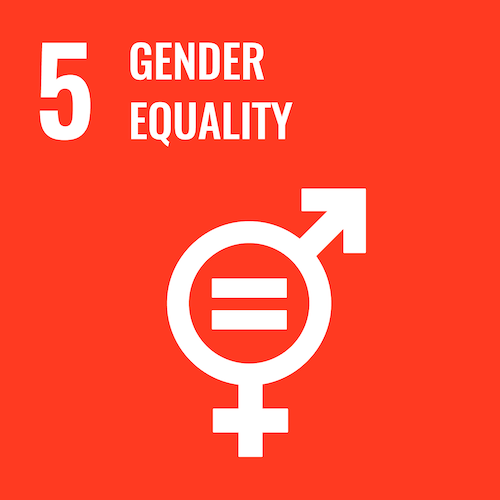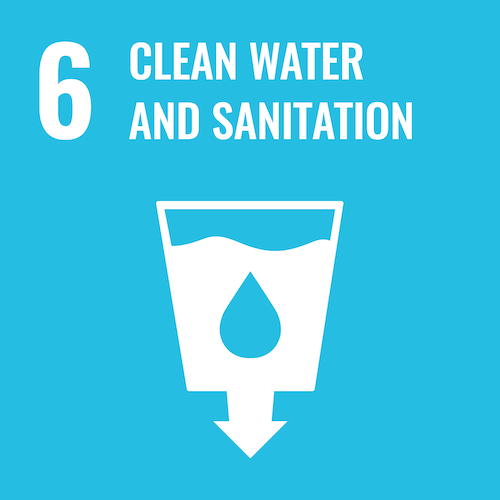PR ON THE GO February 18, 2024
Towards a better future:
The 17 UN Sustainable Development Goals and how young innovators can make a difference

Author: Leonidas Episkopos
Leonidas holds an MA in International Relations and is currently pursuing an MA in Strategic Communication and Public Relations. At PR ON THE GO, he brings his experience in global newsrooms and brand marketing at 3M to the local business focus.
Let's explore the 17 UN Sustainable Development Goals and find out how dynamic and visionary young entrepreneurs can lead the way in creating positive change and lasting impact.
In 2015, the world united under a strong United Nations mandate to transform the planet into a more sustainable place by 2030. This global initiative called the 2030 Agenda for Sustainable Development, consists of 17 key goals that address pressing issues such as hunger, poverty, and climate change. We advise young impact-driven entrepreneurs to actively get involved to one of these efforts and share a commitment to achieving them. This article will introduce each of the 17 SDGs, their importance, and the work required to achieve them.
Goal 1: No poverty
To end poverty in all its forms, it is essential to ensure fair and equitable access to opportunities, resources and education. Implementing ethical labour practices and creating employment opportunities can make a significant contribution to achieving the goal of ending hunger through small business owners. By collaborating with neighbouring communities and offering skills training, entrepreneurs can empower individuals and break the cycle of poverty.
Goal 2: Zero hunger
The second objective is to eradicate hunger, promote sustainable agriculture, ensure food security, and enhance nutrition. To ensure that everyone has access to food, it advocates for fair and efficient food distribution programs. Agri-food entrepreneurs who implement sustainable farming practices, reduce food waste, and promote local food systems play a crucial role in achieving this objective. Farmers' markets, food banks, and community gardens are initiatives that can significantly impact ending hunger.
Goal 3: Good health and well-being
Goal 3 aims to improve the overall health and well-being of individuals by reducing mortality rates, increasing access to basic healthcare services, and addressing health-related barriers such as psychological issues and infectious diseases. Small businesses should prioritize their employees' health by implementing wellness programs, providing healthcare benefits, and fostering a positive work environment. Similarly, health startups could focus on creating affordable and accessible healthcare options for their local communities.
Goal 4: Quality education
Goal 4 promotes equitable and universal access to high-quality education. It emphasizes the importance of making education widely accessible to all, supporting gender parity in the classroom, and providing opportunities for lifelong self-improvement. Ed-Tech startups play a crucial role in achieving this goal by offering creative and easily accessible learning alternatives, scholarship opportunities and practical training programs. In addition, they collaborate with educational institutions and provide mentorship opportunities to help achieve Goal 4.
Goal 5: Gender equality
Goal 5 aims to achieve gender equality and empower women and girls. It addresses equitable access to education and work opportunities, as well as the abolition of harmful customs, violence, and prejudice. Inclusive hiring practices, equal opportunities for professional advancement, and support for women's entrepreneurship can proactively promote gender equality within organisations.
Goal 6: Clean water and sanitation
Goal 6 focuses on ensuring universal access to sustainable sanitation and clean water. Its main objectives are to combat water scarcity, improve water quality, and promote good hygiene. Entrepreneurs play a critical role in accomplishing this aim through the application of water-saving strategies, support of water preservation initiatives, and raising awareness of the value of clean water and sanitation in nearby communities.
Goal 7: Affordable and clean energy
Goal 7 aims to achieve universal access to affordable, reliable, and modern energy while promoting sustainability. To reduce environmental damage and ensure energy stability, it strongly recommends the use of renewable energy sources. Small business owners can contribute to addressing energy-related concerns in their communities by adopting clean and renewable energy sources, implementing energy-efficient practices, and developing innovative solutions.
Goal 8: Decent work and economic growth
The aim of Goal 8 is to achieve comprehensive and long-lasting economic growth that supports sustainability and inclusion. Its main objectives are to increase the number of available productive jobs and promote decent work for all. Eliminating child labour and forced labour is a vital element. Entrepreneurs play an essential role in this regard by providing equitable pay, imparting required skills, and fostering inclusive growth. Encouraging local economies and pursuing ethical business practices are essential to achieving Goal 8.
Goal 9: Industry, innovation and infrastructure
Goal 9 places great importance on achieving inclusive and sustainable industrialization, resilient infrastructure, and innovation for sustainable development. Small business owners can promote innovation by implementing sustainable technology, adopting circular economy practices, and contributing to the development of resilient infrastructure in their local communities.
Goal 10: Reduced inequalities
Goal 10 aims to address social, economic, and political marginalisation, discrimination, and income inequality to reduce the gap between people and countries. Entrepreneurs can help combat inequality by promoting an inclusive and diverse culture within their businesses, treating all employees fairly, and actively participating in community projects that reduce social and economic disparities.
Goal 11: Sustainable cities and communities
The objective of Goal 11 is to improve the sustainability, safety, resilience, and inclusivity of cities and human settlements. This important goal addresses issues such as disaster preparedness, slum rehabilitation, and urbanization. Urban entrepreneurs play a crucial role in promoting community development, supporting local initiatives, and adopting sustainable business practices. These business owners support the creation of inclusive, resilient, and sustainable communities.
Goal 12: Responsible consumption and production
Goal 12 aims to promote sustainable patterns of production and consumption. This involves promoting resource efficiency, reducing waste, and minimizing the environmental impact of products throughout their life cycle. Entrepreneurs can drive change by adopting sustainable production practices, reducing waste, and offering eco-friendly products. Additionally, these business owners can educate customers on the importance of their choices and how they can promote responsible consumption habits.
Goal 13: Climate action
Goal 13 aspires to combat climate change and its negative impacts. This objective emphasizes the need to adapt to the effects of climate change and implement solutions to reduce greenhouse gas emissions while also promoting awareness. Small business owners can make a significant contribution to the fight against climate change by reducing their carbon footprint, implementing sustainable business practices, and supporting campaigns that raise awareness about this critical issue.
Goal 14: Life below water
Goal 14 aims to conserve and sustainably use marine resources, while also addressing critical issues such as ocean acidification, marine pollution, and overfishing. Entrepreneurs in the marine industry can have a significant impact on marine conservation by supporting conservation activities, collecting data, and adhering to sustainable fishing practices.
Goal 15: Life on land
Goal 15 prioritises protecting, preserving, and sustainably using terrestrial ecosystems to address issues such as deforestation, desertification, and biodiversity loss. Entrepreneurs play a crucial role in achieving this goal by fostering biodiversity, engaging in reforestation projects, and implementing sustainable land management techniques that preserve and revitalise these vital ecosystems.
Goal 16: Peace, justice and strong institutions
The objective of Goal 16 is to create peaceful and inclusive societies, guaranteeing equal access to the legal system and promoting accountable and diverse institutions at all levels. Business owners of all sizes can contribute to this goal by conducting business responsibly, upholding human rights, and actively participating in community initiatives that promote peace, equity, and strong institutions.
Goal 17: Partnerships for the goals
Goal 17 emphasises the significance of international collaboration in accomplishing the other SDGs. It urges governments, businesses, civil society, and other key stakeholders to collaborate, share knowledge, and pool resources. Entrepreneurs can enhance their impact by partnering with government organisations, non-profits, and other businesses. By collaborating, these initiatives support the common goal of achieving all 17 SDGs and foster the development of a more resilient and sustainable global community.
To summarize
The UN Sustainable Development Goals (SDGs) are comprehensive and ambitious in their pursuit of making the world a better place for current and future generations. This requires our collective responsibility as a global community to use innovative and forward-thinking techniques to achieve these goals.
#PRontheGO
Subscribe to our growthhacking newsletter.
Follow the latest PR hacks from our experts.
















